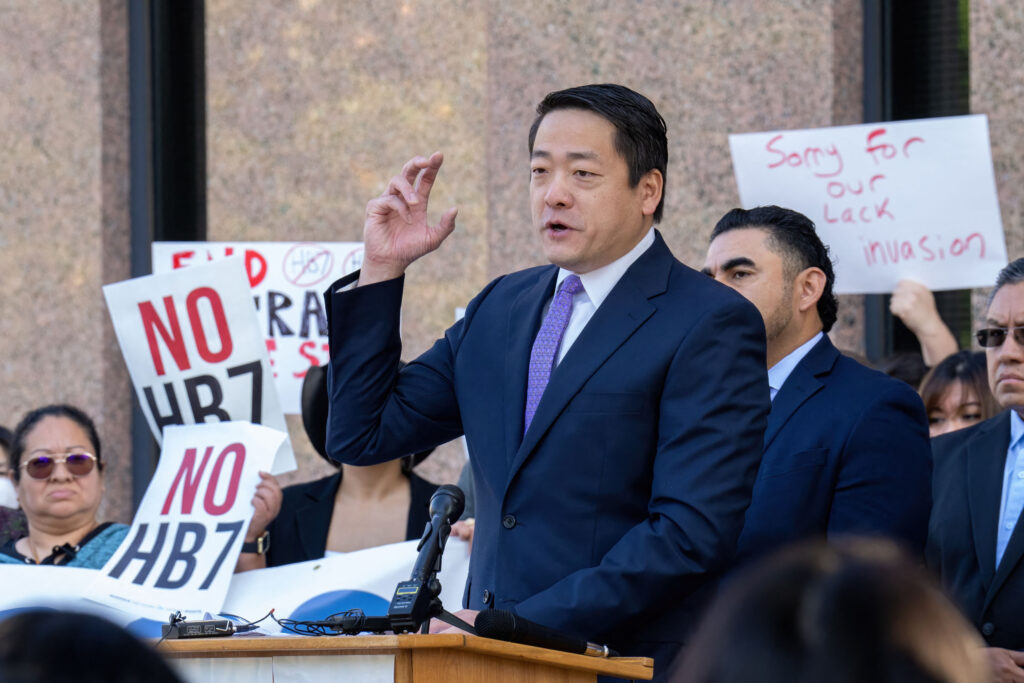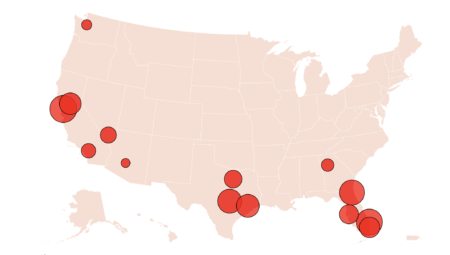Texas Democrats on Sunday departed from the Lone Star State and headed to Chicago in an effort to prevent their state legislature from holding a vote that would approve Republican-backed redistricting maps.
Illinois Governor JB Pritzker, a Democrat, helped arrange for the trip during a meeting with the Texas caucus last month. He has directed his staff to assist the Texas lawmakers with any necessary support during their stay.
Newsweek has reached out to Pritzker’s office by email outside of normal business hours on Sunday.
Why It Matters
Historically, the party in the White House loses seats, and Republicans currently have a slim majority in both the U.S. House and Senate, giving Democrats hopes of retaking at least one of the houses of Congress in next year’s midterms.
Texas Republicans have sought to redraw the districting map in an effort to bolster nationwide party chances of retaining the U.S. House of Representatives in the 2026 midterm elections. Republicans in other states with significant battleground contests coming up have also looked to follow a similar path.
What To Know
More than 51 Democratic members of the Texas House of Representatives departed the state on Sunday, aiming to deny the chamber a quorum and prevent passage of a proposed Republican map before a scheduled floor vote. The Texas House requires the presence of at least 100 of its 150 members to conduct business.
With only 62 Democratic members in the chamber, their collective absence can halt legislative proceedings, according to the Associated Press.
Texas Governor Greg Abbott, a Republican, had called a special session to address the flooding that killed 135 people last month in Texas Hill Country and the redistricting plan, which would redraw congressional boundaries and could potentially increase Republican-held seats from 25 to as many as 30 out of Texas’ 38 districts.
The AP reported that Trump urged Texas Republicans to redraw the map.
The map targets Democratic-leaning areas in cities such as Austin, Dallas, Houston, and regions in south Texas. Republican leaders advanced their proposal through committee on Saturday and scheduled a key floor vote for Monday, prompting the Democrats’ walkout.
Texas Democrats had pulled a similar move in 2021 in order to block new voting restrictions that the state legislature was trying to pass.
However, Texas House Speaker Dustin Burrows warned his colleagues across the aisle that should they deny his party a quorum, then “all options will be on the table.” Texas Attorney General Ken Paxton echoed that sentiment, writing on X that the party should use “every tool at our disposal” to deal with the runaway Democrats.
Existing House rules allow for the arrest and fining of members for breaking quorum, including proposed $500-per-day fines, although they may prove difficult to enforce while lawmakers remain outside Texas, where state jurisdiction does not apply, according to ABC News.
What People Are Saying
Texas Attorney General Ken Paxton wrote on X on Sunday: “Democrats in the Texas House who try and run away like cowards should be found, arrested, and brought back to the Capitol immediately. We should use every tool at our disposal to hunt down those who think they are above the law.”
Texas state Representative Gene Wu, chair of the House Democratic Caucus, in a statement: “This is not a decision we make lightly, but it is one we make with absolute moral clarity. We’re not walking out on our responsibilities; we’re walking out on a rigged system that refuses to listen to the people we represent.”
Democratic Party Chair Ken Martin in a statement said: “For weeks, we’ve been warning that if Republicans in Texas want a showdown—if they want to delay flood relief to cravenly protect Donald Trump from an inevitable midterm meltdown—then we’d give them that showdown. That’s exactly what Texas Democrats did today: blowing up Republicans’ sham special session that’s virtually ignored the plight of flood victims in Kerr County.”
What Happens Next?
Texas Republicans will attempt to find legal means of passing the proposed redistricting, though that may lead to a drawn-out legal battle.
The U.S. Supreme Court is already reviewing a dispute over redistricting in Louisiana, and earlier this year overturned a lower court decision that ruled South Carolina’s congressional map was unconstitutional.
This article includes reporting by the Associated Press.
Read the full article here

















